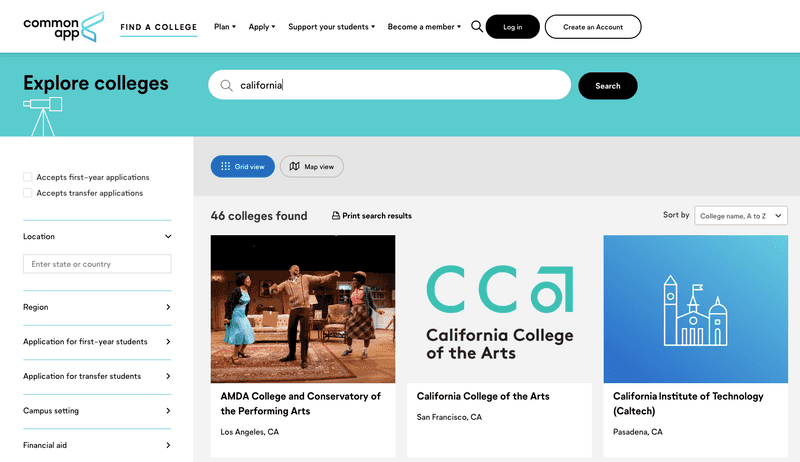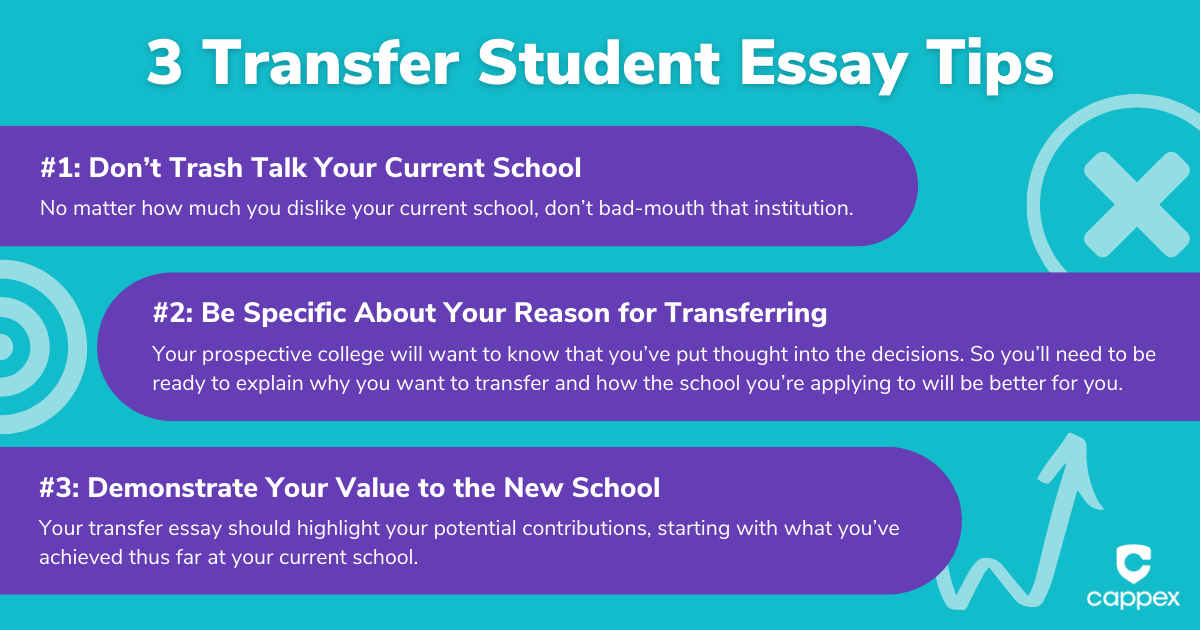Key Takeaways
The University of San Francisco (USF) has a test-optional policy for transfer students.
A competitive GPA for USF transfer applicants is around 3.57, but the minimum GPA needed can vary depending on the program.
Transfer students must submit transcripts from all previously attended institutions, and a high school transcript if they have fewer than 24 semester credits.
Letters of recommendation are not mandatory but can strengthen your application.
Meeting priority deadlines, such as March 1 for fall admission, is crucial for a better chance of acceptance and financial aid consideration.
University of San Francisco Transfer Requirements Including GPA and Standardized Tests
Introduction to USF Transfer Process
Thinking about transferring to the University of San Francisco? You’re making a big step, and I’m here to guide you through it. Transferring to USF means you’re ready to join a diverse community of thinkers, leaders, and go-getters. But first, let’s make sure you understand the nitty-gritty of the transfer process, including GPA and standardized test requirements, to ensure you’re on the right track.

“University of San Francisco Homepage …” from www.usfca.edu and used with no modifications.
GPA Requirements for Transfer Students
Let’s talk numbers. Your GPA is one of the first things USF will look at. A solid GPA not only shows that you’ve got the brains, but also that you’re committed and can handle the workload. Most importantly, USF wants to see that you’re up for the challenge of their academic programs.
Minimum GPA Criteria
The baseline GPA you’ll need to transfer to USF is a detail you can’t overlook. While different majors might have different standards, USF generally looks for a minimum college GPA of around 2.5 to 2.75. However, just meeting the minimum won’t make you stand out. Aim higher to increase your chances.
Competitive GPA for Different Majors
But what’s the magic number to really catch USF’s eye? A GPA of 3.57 or above is competitive for most majors. Some programs might be even more selective, so it pays to push for the best grades possible. Think of it this way: the higher your GPA, the stronger your application will be.
Standardized Test Policies
Now, onto tests. USF has adopted a test-optional policy, meaning you don’t have to submit SAT or ACT scores. This policy is a big win if standardized tests aren’t your thing. But remember, if you’ve got great scores, they can still give your application a boost.
Current Test-Optional Policy
Why test-optional? USF believes in evaluating the whole student, not just a number on a page. This approach means your academic achievements, extracurricular activities, and personal experiences play a starring role in your application story.
When Test Scores Might Benefit Your Application
Consider sending in your test scores if they’re strong. Especially if you feel like your GPA doesn’t fully reflect your abilities. A high SAT or ACT score can be the cherry on top of your application, showing USF that you’ve got what it takes to succeed.
Required Application Materials
Gather your materials. You’ll need your college transcripts, and if you have less than 24 semester credits, your high school transcript too. This paperwork is crucial – it’s the proof of all your hard work so far.
And that’s just the beginning. There’s more to dive into, including the importance of application deadlines and tips for making your transfer application shine. Stick with me, and we’ll make sure your application to USF is as strong as it can be.
Transcripts and Credits
When transferring to USF, your transcripts are your academic fingerprint. They tell the story of your journey through college so far. USF will want to see every subject you’ve tackled, the grades you’ve earned, and the credits you’ve accumulated. It’s like a highlight reel of your educational accomplishments.
Remember, USF requires an official transcript from each and every college you’ve attended. And if you’re short on college credits – less than 24 semester credits – you’ll also need to submit your high school transcript. This helps the admissions team get the full picture of your academic background.
Letters of Recommendation
Letters of recommendation aren’t mandatory for USF, but they can be your secret weapon. Think of them as glowing reviews from people who’ve seen you in action. They vouch for your character, your work ethic, and your potential. If you’ve got someone who can sing your praises – a professor, an advisor, or a supervisor – don’t hesitate to ask for a letter.
Important Deadlines
Deadlines are the gates to your future at USF – miss them, and you might miss out. USF sets specific dates by which they want to see your application, and it’s crucial to mark these on your calendar. The early bird doesn’t just get the worm; they get the attention of the admissions committee.
Fall and Spring Priority Deadlines
For the best shot at getting into USF, aim for the priority deadlines. March 1 is the date to remember for fall admission, and October 1 for spring. Meeting these deadlines gives you a better chance of acceptance and puts you in the running for financial aid and scholarships.
FAFSA Submission Date
Money matters. The Free Application for Federal Student Aid (FAFSA) is your ticket to financial support, and USF’s priority FAFSA submission date is February 1. File by this date to maximize the aid you could receive. After all, college is an investment, and every bit of help counts.
Tips for a Successful Transfer Application
Now let’s get tactical. To craft a winning transfer application to USF, you’ve got to think strategically. First, be mindful of the details. Review your application multiple times to ensure accuracy and completeness. Second, be personal. Share your story, your goals, and what you’ll bring to the USF community. Finally, be proactive. Reach out to the admissions office with questions, show your interest, and make connections that could help your application stand out.
Above all, be authentic. USF wants to know the real you, so let your personality shine through in your application. This is your chance to make an impression, so make it count.
And don’t forget to proofread! A typo might seem small, but it can raise questions about your attention to detail. Get a second pair of eyes on your application before you hit submit. For more advice, check out these common app mistakes to avoid.
Improving Your GPA
If your GPA isn’t where you want it to be, don’t fret. You’ve still got time to bump it up. Focus on acing your current courses, seek help if you need it, and consider retaking classes where you didn’t do so well. A rising GPA is a sign of determination – something USF will appreciate.
It’s also wise to choose your courses strategically. If you know which major you’re aiming for at USF, take related courses now. Success in these classes can show the admissions team that you’re ready for the challenges of your chosen field. For more insight, consider reading about effective strategies and techniques for transfer college students to manage stress and optimize success.
Crafting a Compelling Personal Statement
Your personal statement is more than an essay; it’s a window into who you are. It’s your chance to explain why you’re transferring, what you hope to achieve, and why USF is the right place for you. Be sincere, be clear, and most importantly, be yourself. Tell a story that only you can tell – one that makes the reader eager to meet you in person.
Need a starting point? Reflect on a challenge you’ve overcome, a project you’re proud of, or a moment that changed your perspective. These insights can provide a strong foundation for your personal statement.
Choosing Strong Recommendations
If you decide to include letters of recommendation, choose your recommenders carefully. Pick individuals who know you well and can speak to your strengths. Give them plenty of time to write the letter, and provide them with a copy of your resume or a list of your accomplishments to help them craft a compelling case for your admission.
Additional Considerations for Specific Programs
Some USF programs have extra requirements. For instance, the School of Nursing and Health Professions has prerequisite courses and may require additional application materials. Do your homework to ensure you meet every requirement for your intended major.
For programs like science and engineering, you’ll want to show strong performance in relevant coursework. This demonstrates to USF that you’re prepared for the rigors of the program and that you’re committed to your field of study.
Nursing Program Requirements
If nursing is your calling, USF has specific prerequisites you’ll need to meet. Courses in anatomy, physiology, and microbiology, among others, are usually required. Grades in these courses are particularly important, as they reflect your preparedness for the nursing curriculum.
Additional Considerations for Specific Programs
Each program at the University of San Francisco has its own set of requirements and expectations for transfer students. Some programs may be more competitive and require a higher GPA, while others may have specific prerequisite courses that must be completed before transferring. It’s crucial to research the specific requirements for your intended major and to prepare accordingly to ensure a smooth transfer process.
Nursing Program Requirements
The Nursing program at USF is highly competitive and seeks students with a strong academic background in science and healthcare. If you’re aiming to transfer into this program, you’ll need to have completed prerequisite courses in the sciences with excellent grades. These typically include anatomy, physiology, and microbiology, among others. The admissions committee will be looking closely at your performance in these areas to assess your readiness for the rigorous nursing curriculum.
Additionally, the Nursing program may require you to submit a separate application or additional materials, such as a statement of purpose or evidence of healthcare experience. Be sure to check the program’s website or contact the admissions office for the most up-to-date information on application requirements.
Lastly, keep in mind that the Nursing program has limited spots available each year, so it’s important to apply early and present a strong application that highlights your dedication to the field of nursing and your potential to contribute to the USF community.
Science and Engineering Coursework
If you’re interested in transferring into a Science or Engineering program at USF, you should be prepared to demonstrate a solid foundation in mathematics and the sciences. This could mean having completed courses in calculus, physics, chemistry, and biology with strong grades. The admissions committee will be looking for evidence that you can handle the challenging coursework and that you have a genuine interest in the field.
It’s also a good idea to get involved in related extracurricular activities, such as science clubs, research projects, or internships. These experiences can strengthen your application and show that you’re committed to your chosen field of study.
FAQs
As you prepare your transfer application to USF, you might have some questions. Let’s address some of the most common inquiries to help you navigate the process.
What is the minimum GPA needed for transfer students?
The minimum GPA requirement for transfer students at USF can vary depending on the competitiveness of the program you’re applying to. Generally, a GPA of 2.5 to 2.75 is required for admission consideration, but to be competitive, you should aim for a GPA of 3.57 or higher. Always check the specific requirements for your intended major to ensure you meet the necessary criteria.
Does USF require SAT/ACT scores for transfer students?
USF has adopted a test-optional policy, which means that SAT/ACT scores are not required for transfer students. However, if you have strong test scores, you may choose to submit them as part of your application. High test scores can complement your academic record and potentially give you an edge in the admissions process, especially if your GPA is not as high as you would like it to be.
Can I transfer credits from multiple colleges?
Yes, you can transfer credits from multiple colleges to USF. The university will review all your transcripts to determine which credits are transferable. Keep in mind that you must submit official transcripts from every college you have attended, regardless of whether you want to transfer those credits. It’s important to ensure that the courses you’ve taken align with USF’s curriculum to maximize the number of credits you can transfer.
What are the priority application deadlines?
To maximize your chances of being accepted to USF and to be considered for financial aid and scholarships, you should submit your application by the priority deadlines. For fall admission, the priority deadline is March 1, and for spring admission, it’s October 1. Meeting these deadlines shows the admissions committee that you’re serious about attending USF and allows you to receive an admissions decision earlier.
How can I make my transfer application stand out?
To make your transfer application to USF stand out, focus on showcasing your academic achievements, relevant experiences, and personal growth. A strong GPA and completion of prerequisite courses are essential, but don’t forget to highlight your extracurricular activities, leadership roles, and community service. Additionally, a well-written personal statement that reflects your passion for your field of study and your fit with USF’s values can make a significant impact. Lastly, letters of recommendation from professors or employers who can speak to your abilities and potential can add depth to your application and help you stand out from other candidates.
Understanding the University of San Francisco transfer requirements is crucial for students looking to transition from another institution. This includes meeting the GPA threshold, submitting standardized test scores if necessary, and ensuring that all your credits are transferable. Prospective transfers should thoroughly research the requirements to ensure a smooth application process.




